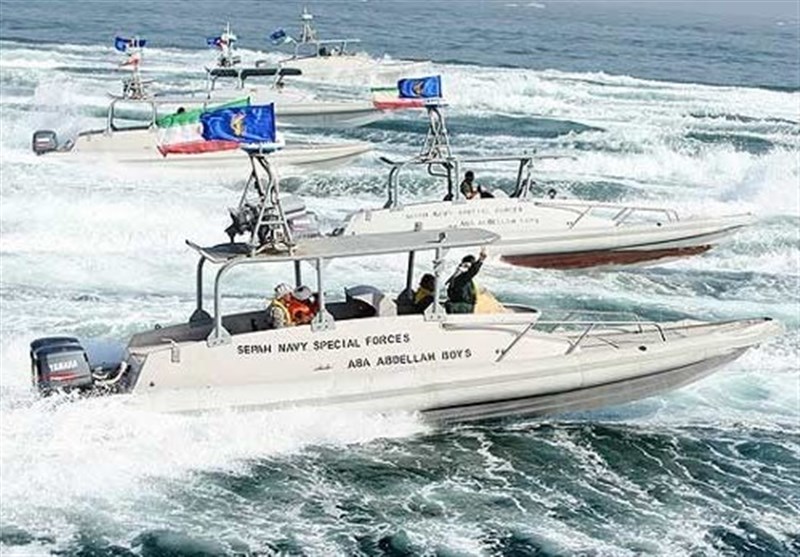
RNA - "A US warship of the US-British fleet, which was sailing through the traffic zone of the Strait of Hormuz, derailed from the international way and changed its course towards the IRGC Navy vessels present in the region at 10:20 to 11:00 of March 4 morning and it approached our vessels from a 550m distance in an unprofessional move with simultaneous warnings," Commander of the warship of the Zolfaqar 112 combat brigade of the IRGC Navy's first zone Admiral Mehdi Hashemi said on Wednesday.
Noting that deployment of the US and British vessels in the Persian Gulf and the Strait of Hormuz has endangered security of the strategic region which is deemed as the world's energy lifeline, he said, "Their unprofessional moves have provoked tension and insecurity and can have irreparable consequences."
His remarks came after a US official claimed on Monday that multiple fast-attack vessels from the Iranian Islamic Revolution Guard Corps came close to a US Navy ship in the Strait of Hormuz on Saturday, forcing it to change direction.
"The official, speaking on the condition of anonymity, said the IRGCN boats came within 600 yards of the USNS Invincible, a tracking ship, and stopped. The Invincible was being accompanied by three ships from British Royal Navy and forced the formation to change course," Reuters claimed in its report.
Iran has the lengthiest coasts along the Persian Gulf that entitles the country to be in charge of protecting security of the waterway that happens to be the world's energy lifeline.
US navy ships approach Iran's maritime borders in the Strait of Hormuz several times a year, and they are shooed away every time the IRGC Navy boats approach them for warning.
As international laws entitle Iran with the task to protect security at the Strait, the IRGC has ordered all foreign ships to communicate in the Persian language.
The IRGC seized two US Navy boats in the waterway on January 12, 2016 and detained all on board on Iran's Farsi Island in the Persian Gulf. Nine men and one woman arrived in Iran's territorial waters in the Persian Gulf illegally when they were captured by the IRGC Navy. They were freed later after diplomatic consultations.
Last July, IRGCN Lieutenant Commander General Alireza Tangsiri said the US warships have been warned to keep 12 nautical miles away from Iran's territorial waters or wait for an incident similar to what happened last January.
"We have a strong presence in the quintuple regions of the South and our independent bases in the Sea of Oman, in such a way that foreign vessels never dare to approach regions 12 miles away from our territorial waters and if they do, they will be treated like what we did to the Americans (on January 12, 2016)," Tangsiri told Fars News Agancy in July.
Late this January, IRGC Deputy Top Commander Brigadier General Hossein Salami stressed the IRGC Navy's high capabilities, and warned that any aggressive action will receive Tehran's crushing response.
"Any power that seeks to make an aggression against the (Iranian) territorial waters intentionally or unintentionally will be confronted by the IRGC Navy's high power," General Salami said, addressing a ceremony in the Northern city of Bushehr.
He referred to the detention of the US naval forces by the IRGC Navy in the Persian Gulf in January 2016, and said the incident shattered the arrogant powers' awe in the heart of the Persian Gulf.
847/940